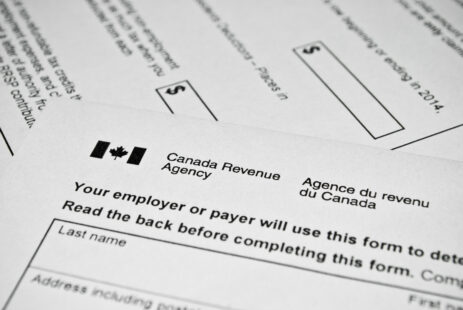December 16, 2021
Triggering Capital Gains: Should I Choose to Pay Taxes Today?
The following is a guest post by Lyndon Braun, CPA, CA, Tax Partner at Manning Elliott LLP.
Anyone who tells you they know with any certainty where Canada’s tax policy is going to go in the future is pulling your leg.
As tax advisors, many of us spend our time speculating on possible changes and shifts in tax law that will affect our clients. Most recently there has been an undercurrent of negative expectations permeating through the tax planning community. Whether it is related to the large-scale government fiscal deficits, incredible housing market booms, or other economic trends like inflation, economic changes are happening all around us. It would seem that the pervasive sentiment in the tax planning community, with regards to the economic turmoil, is that is tax rates have only one way to go, and that is UP.
While no one has a crystal ball to see what happens next, we are regularly having discussions with our clients and their financial advisors trying to lay out plans to navigate these issues. Importantly, the rule of thumb in tax planning has historically been to defer the realization of taxable income and taxable gains wherever possible. The rationale for this is in that the deferral of taxes is really a preservation of capital and an increase in return on that capital – because more of it is left to compound each year. But if you follow the rationale that perhaps tax rates are going up, does the attractiveness of tax deferral stay the same?
For some context, historically in Canada capital gains have been incentivized as a matter of public policy, relative to other sources of income. Capital gains realized by investors are currently subject to tax on only half of the gain. Whether realized corporately or personally, capital gains currently have an effective tax rate around 25% at the highest marginal rate (24.0% in Alberta, 26.75% in BC, and 26.76% in Ontario). Any way you slice it, there are significant tax rate advantages of a capital gain over almost any other type of income, whether it’s wages, rents, interest, or dividends.
A Brief History of the Capital Gains Tax in Canada
- January 1, 2022 is the 50th anniversary of the capital gains tax
- 1972 - it started with a 50% Inclusion Rate and all prior capital gains were exempted
- 1988 - the Inclusion Rate was increased from 50% to 66.67%
- 1990 – the Inclusion Rate was increased again to 75%
- 2000 - the Inclusion Rate was reduced back to 50% and has remained there since
So what would happen if the prevailing public policy to incentivize investment and the resulting capital gains suddenly switches? There has been speculation that the capital gains rate could be increased by altering “Inclusion Rate,” or the formula that currently makes only half of the gain taxable. If the Inclusion Rate for capital gains was increased from 50% to say, 75%, it would result in taxes on a capital gain being effectively increased from 26% to almost 40%. The impact would be monumental with regards to latent tax built into the future sale of investments and assets. The implementation of any change is also a source of uncertainty at this point: would new rules apply as of the date of announcement or retroactively to the beginning of the tax year (though unprecedented, if so)?
In the current environment one thing that is certain is that the rule of thumb about deferring taxes should no longer be blindly followed. Instead, a contextualized discussion should be taking place that considers tax rates, opportunity costs, liquidity and available cash flow, as well as time frames for the eventual sale of assets. Each person will have a different context and a different timeframe, and there is not a one-size-fits-all solution. As an example, if you are thinking of selling an investment in two to three years, does it make sense to trigger the taxes on that eventual gain now, at the prevailing rates that exist today? From the perspective of risk management and return on investment, the shorter the time frame to actual sale, the better the outcome on locking in the tax rates today if those tax rates do increase in the future.
The use of capital and how possible changes in tax rates would affect your financial health is a very material and timely topic and could have a significant impact to your finances. By thinking ahead, you can become better informed but more importantly, you will be empowered to decide how to manage these uncertainties and minimize the risk that rate changes may carry for you and your financial health.
The contents of this article are not intended to represent legal or tax advice. Please consult your adviser before employing any strategies discussed here.

By Lyndon Braun, CPA, CA
Tax Partner at Manning Elliott LLP
Recent Posts
- VIDEO: Navigating Dementia: Recognize, Prepare, Plan
- New Trust Reporting Requirements Now in Effect May Catch Some by Surprise
- Leith Wheeler Explainer Series: The Dividend Debate
- Hitting Pay Dirt: The Selling of an Ag Empire
- The Risks of Transactive Memory
- Building Out Your Core with US SMID and Emerging Markets Equities
- Resources for Reconciliation - 2023
- How Could Budget 2023’s Proposed Taxation of Donated Securities Affect Not-for-Profits?
- Taming an Unintentional Portfolio
- Women, Money, and My Holiday Beach Read


